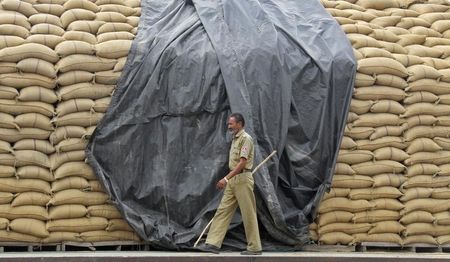Khartoum (Reuters) – Sudan has scrapped a special U.S. dollar/Sudanese pound exchange rate used for wheat imports, effectively removing a subsidy, the finance ministry said on Monday.
The subsidy removal is part of a government plan to liberalize wheat imports during a time of low global wheat prices, allowing the government to save money on importing wheat while also avoiding politically-sensitive price hikes.
The rate changed from 4 Sudanese pounds to 6, bringing it in line with the official exchange rate.
The removal of the wheat subsidy will save the government 3 billion Sudanese pounds ($494.23 million) and will help the central bank maintain its hard currency reserves, Finance Minister Badr al-Din Mahmoud Abbas said.
“Changing the price of wheat’s dollar rate comes to remove the damage (resulting from) wheat subsidies,” Abbas said in a statement.
The big subsidy the government was paying for imported wheat had led to a shortage of the commodity in the market, an official at a state-owned flour mill said.
The removal of the subsidy is partly a result of the global reduction in wheat prices, the finance ministry statement said. The statement added that this will not lead to a rise in bread prices, though one importer said he expects minor increases.
The new dollar rate for wheat will not affect a tender announced last week, said a director of state-owned Seen Flour Mills.
In July, Sudan’s central bank raised the exchange rate to 4 Sudanese pounds from 2.9 Sudanese pounds to the dollar for wheat imports, effectively reducing the subsidy.
Protests erupted in Sudan in 2013 when the government announced fuel subsidy cuts.
The Sudanese economy has suffered since the secession of oil-producing South Sudan in 2011, which deprived it of about three quarters of the crude oil production it relied on for state revenues and foreign currency used to import food.
(By Khalid Abdelaziz, Reuters)




